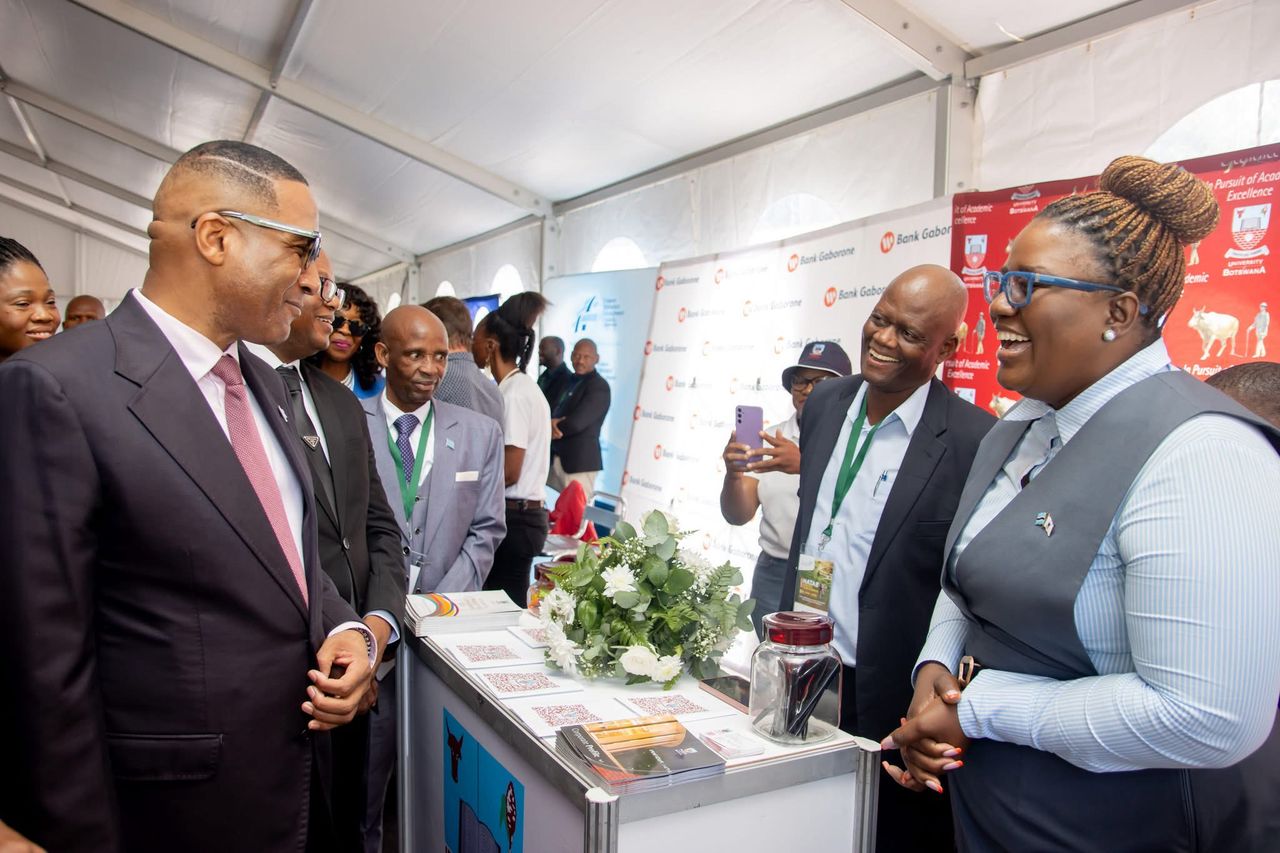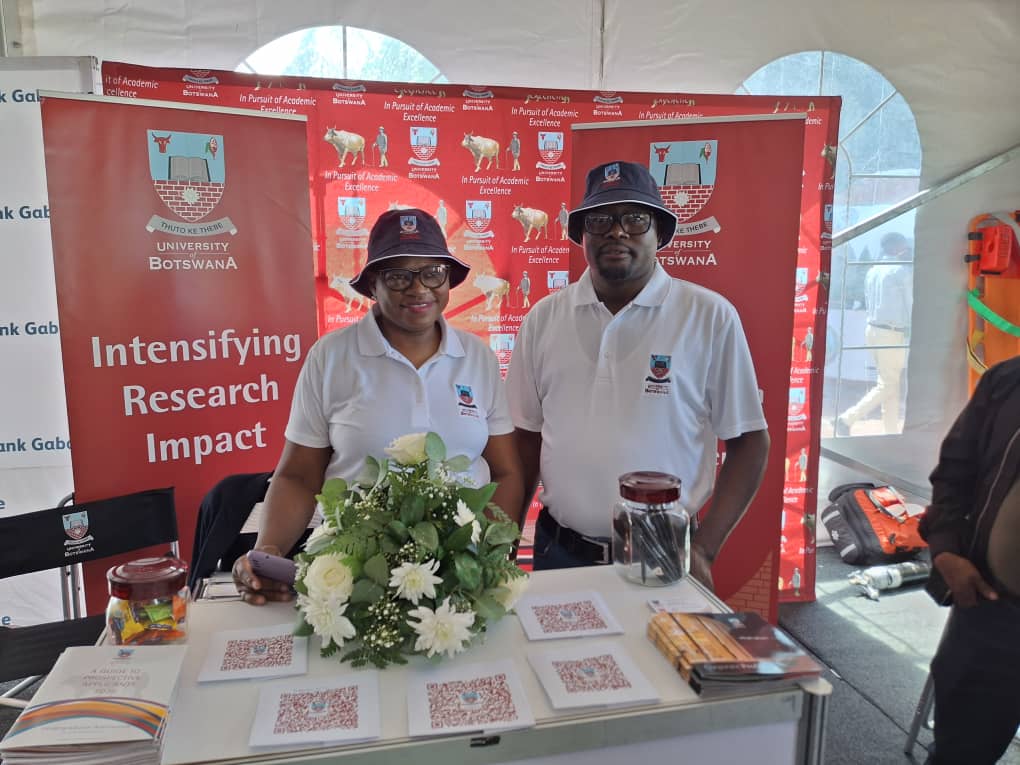UB Reaffirms Its Role in Shaping Botswana’s Tourism Future at 2025 HATAB Conference
 University of Botswana (UB) has reaffirmed its instrumental role in the growth and sustainability of Botswana’s tourism industry through its participation at the 2025 Hospitality and Tourism Association of Botswana (HATAB) Annual Conference currently underway in Maun.
University of Botswana (UB) has reaffirmed its instrumental role in the growth and sustainability of Botswana’s tourism industry through its participation at the 2025 Hospitality and Tourism Association of Botswana (HATAB) Annual Conference currently underway in Maun.
UB’s participation underscores its strategic importance as a national institution committed to producing skilled professionals, conducting cutting-edge research and fostering policy-relevant partnerships that support the long-term development of the tourism sector. The event, which also marked the 40th anniversary of HATAB, is being held under the theme “Botswana Tourism: Exploring the Conditions for Growth.” The conference was officially opened by His Excellency, President Advocate Duma Boko, who underscored the critical role that tourism plays in Botswana’s economic transformation.
Over 250 participants from government, private sector, academia and civic organisations are taking part at the conference to deliberate on critical issues shaping Botswana’s tourism landscape. The discussions aim to explore innovative strategies for destination development, promotion, investment and sustainability.
President Boko addressed the gathering with a strong call to action while emphasising the need to address infrastructural shortcomings that continue to hinder growth in the sector. He highlighted the potential of tourism to rival or even surpass diamonds in its contribution to national GDP if it was managed strategically and with foresight. The President also welcomed the recent introduction of new international flight routes, citing them as key enablers of Botswana’s ambition to become a premier destination for tourism and investment.
Delivering the keynote address, the Honourable Minister of Environment and Tourism, Mr Wynter Boipuso Mmolotsi, shared recent data reflecting the sector’s recovery and growth trajectory. According to the Minister, Botswana experienced an 18 percent increase in international arrivals between 2024 and 2025. Mr Mmolotsi further pointed to the Botswana Tourism Industry Outlook 2024–2028 which projects a rise in tourism revenue from approximately US$334 million in 2023 to an estimated US$399 million by 2028 with an average annual growth rate of 2.8 percent. This steady growth, he said, underscored the resilience and potential of the industry when aligned with targeted policy and investment.
Stakeholders engaged in wide-ranging discussions, covering emerging trends, innovations and the challenges facing the tourism sector. The dialogue reflected a shared commitment to exploring sustainable growth models that integrate tourism into the broader national development agenda. From the implications of Botswana’s evolving economic landscape to the need for diversification of tourism products and stronger linkages with other sectors, participants explored how Botswana could reposition itself within a competitive global tourism market.
The conference also examined the effectiveness of current tourism strategies, the importance of community participation and the transformative role of digital technologies in enhancing the visitor experience and expanding market reach. Investment opportunities, aviation connectivity, infrastructure development and the role of culture and heritage in destination branding also formed part of the robust exchanges that took place throughout the day.
 The University of Botswana used the occasion to reaffirm its commitment to national development through education, research and strategic partnerships. UB showcased its contribution to the tourism sector through its tourism and hospitality management programmes which have produced skilled graduates ready to serve in both the public and private sectors.
The University of Botswana used the occasion to reaffirm its commitment to national development through education, research and strategic partnerships. UB showcased its contribution to the tourism sector through its tourism and hospitality management programmes which have produced skilled graduates ready to serve in both the public and private sectors.
The University also highlighted its ongoing research initiatives that provide evidence-based solutions to pressing industry challenges including sustainability and economic impact. In its engagement with stakeholders, UB emphasised its role in supporting tourism policy formulation and strategic planning through expert analysis and collaborative projects with local and international partners. The two-day conference ends tomorrow.